14 Things Your Cat Understands About You (That You Don’t)
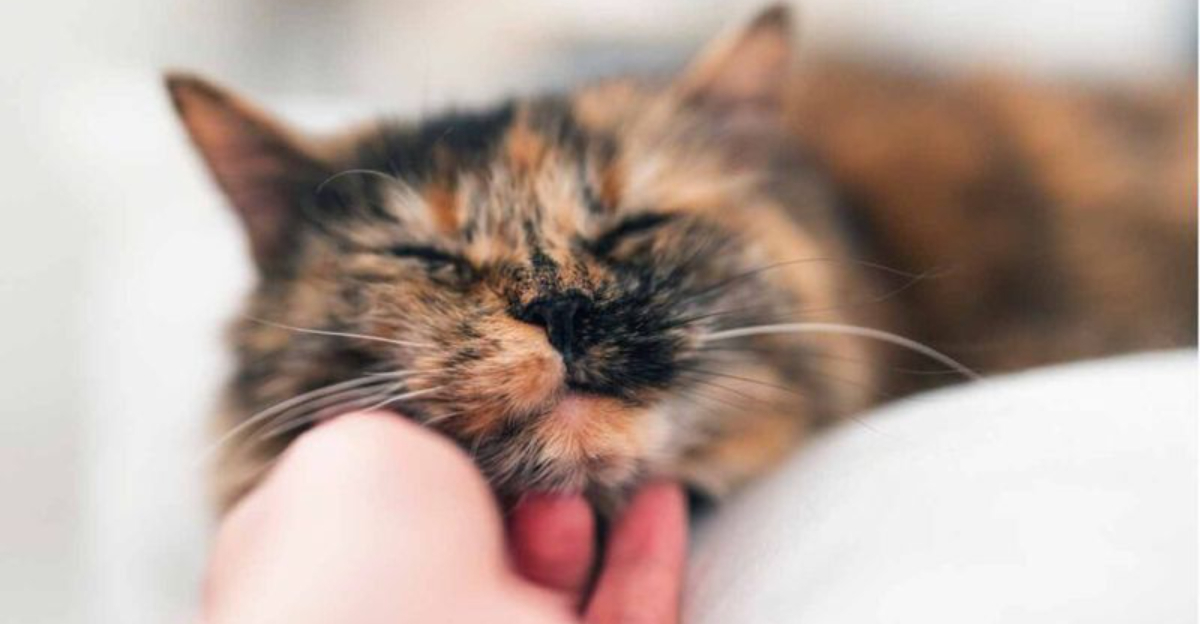
Ever catch your cat staring at you like they know all your secrets? Those mysterious eyes aren’t just judging your fashion choices – they’re actually reading you like an open book.
Cats have evolved alongside humans for thousands of years, developing an uncanny ability to decode our behaviors, emotions, and routines in ways we rarely notice. Here are 14 surprising insights your feline friend has figured out about you while you weren’t paying attention.
1. Your Emotional Weather Forecast
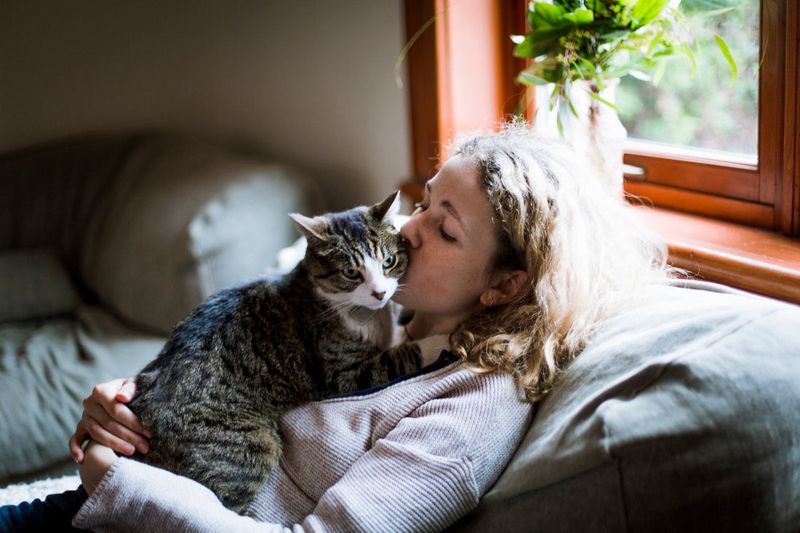
Fluffy doesn’t need a mood ring to track your feelings. Cats detect subtle changes in your body language, voice tone, and even scent when you’re sad, anxious, or happy.
They’ll often respond accordingly – offering cuddles during tough times or giving space when you’re stressed. This emotional radar explains why your cat sometimes appears right when you need comfort most.
2. The Sound Of Your Footsteps
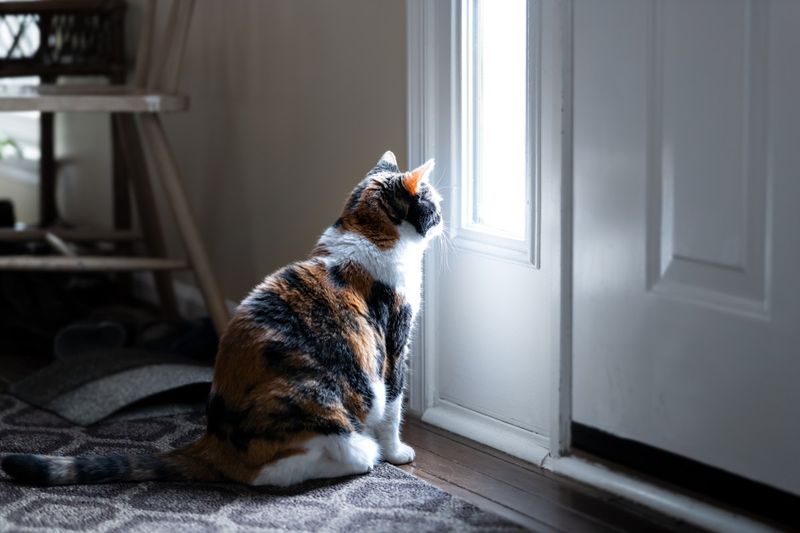
Long before you turn your key in the lock, your cat already knows you’re home. Each person’s walking pattern creates a unique acoustic signature that cats memorize with impressive precision. They distinguish your footsteps from neighbors, delivery people, and other household members. That’s why they’re often waiting by the door before you even reach it – they recognized your specific stride pattern.
3. Your Daily Schedule
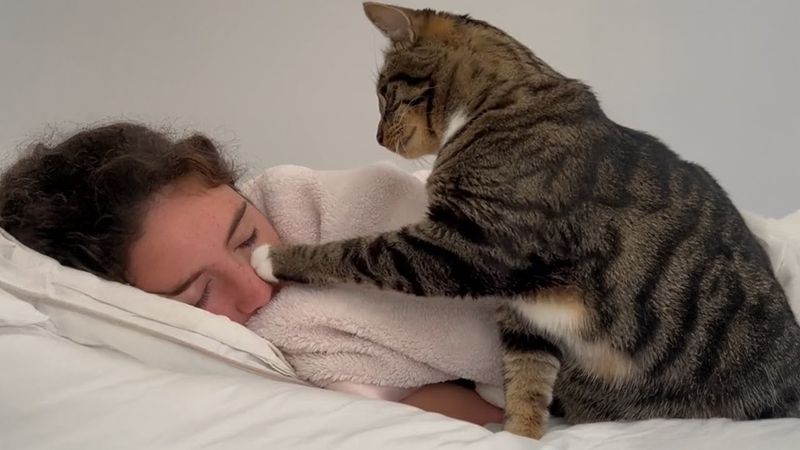
Morning alarm still five minutes away? Your cat’s already tapping your face. These furry timekeepers track your routines with military precision.
They know exactly when you typically wake up, leave for work, prepare dinner, or settle in for TV time. Their internal clocks sync with your schedule, which is why they start circling the food bowl at 5:58 PM when dinner’s always at 6:00.
4. Your Stress Triggers
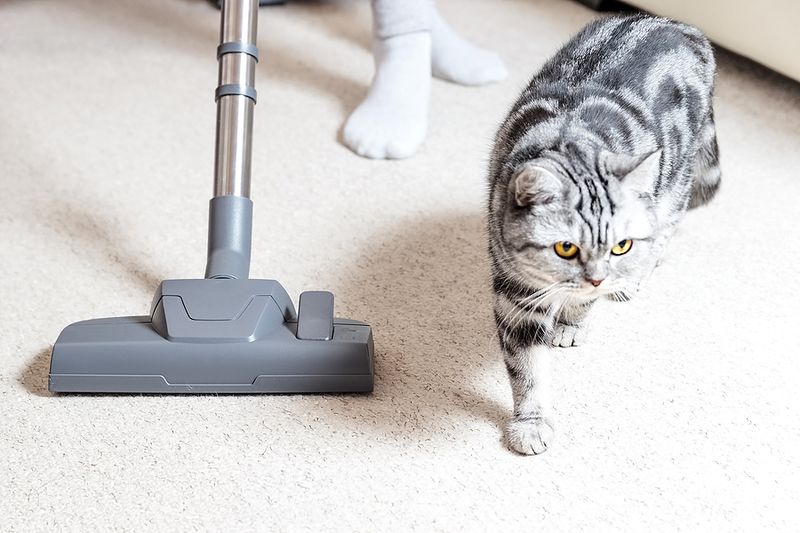
Notice how your cat disappears when you pull out the vacuum? They’ve mapped your entire stress ecosystem. Cats recognize which activities make you tense, distracted, or irritable. They learn to associate specific objects (like your laptop during deadlines) with your changing mood. This awareness helps them decide when to demand attention and when to strategically retreat until your mood improves.
5. Your Attention Patterns

Ever wonder why your cat walks across your keyboard during important Zoom calls? They’ve studied exactly when you’re most focused elsewhere.
Cats track your attention patterns, noting when you’re deeply engaged with something that isn’t them. This explains their uncanny timing for interruptions – they’ve learned precisely when their antics will be most effective at reclaiming your diverted attention.
6. Your Sleep Quality
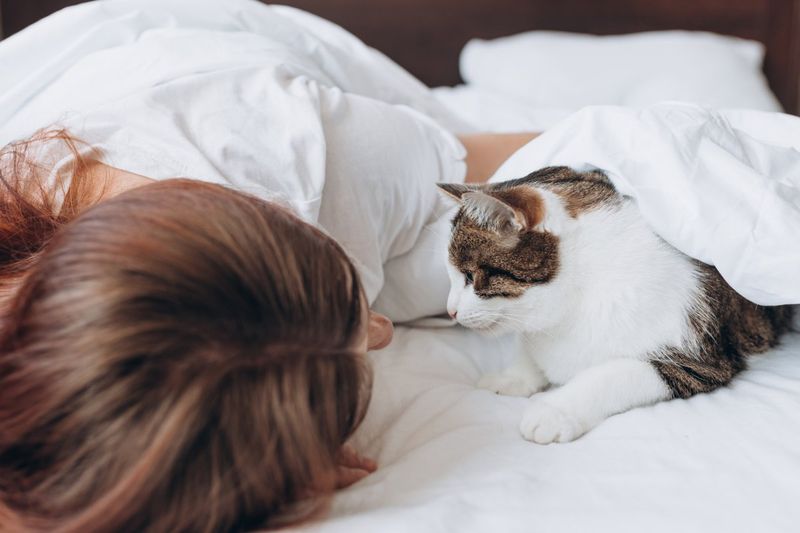
Those nights when you toss and turn? Your cat notices. Felines are incredibly attuned to your sleep patterns and quality. They register your breathing rate, movement frequency, and even subtle temperature changes while you slumber. Many cats adjust their own sleeping position based on yours – moving closer when you’re sleeping peacefully and giving space when you’re restless.
7. Your Vocal Intentions
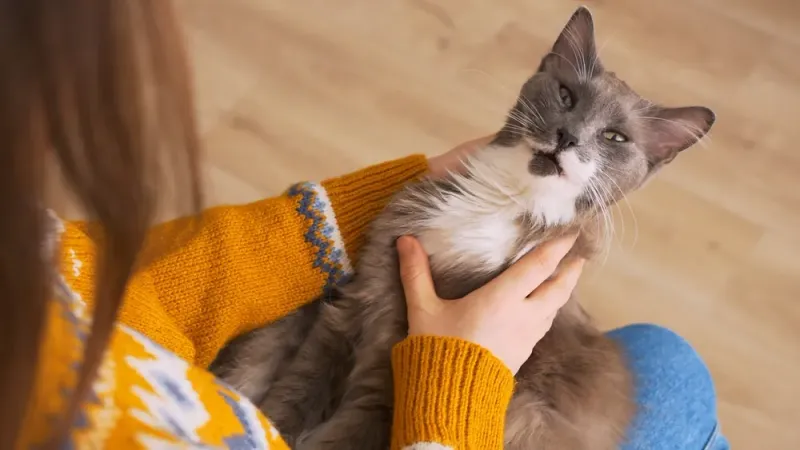
The difference between “kitty kitty” and “come here right now” is crystal clear to your feline friend. Cats develop a sophisticated understanding of your vocal tones and commands.
They distinguish between casual conversation, affectionate baby talk, and stern instructions. Your cat might ignore you not because they don’t understand, but because they’ve decided your request isn’t compelling enough for immediate compliance.
8. Your Vulnerability Zones
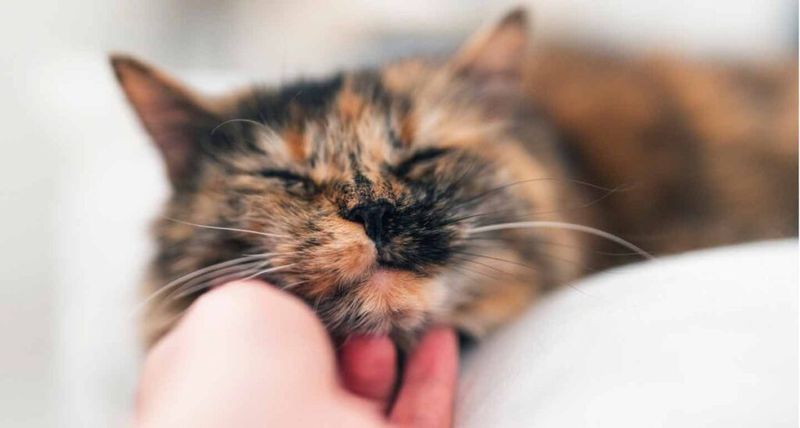
Somehow your cat always finds the exact body part that hurts. This isn’t coincidence – cats detect subtle changes in your body temperature and tension. Areas of pain or illness often emit different heat signatures or carry altered scent markers. Your feline’s tendency to knead or lie on sore spots might actually be an attempt at comfort or healing, as their purring vibrations have documented therapeutic properties.
9. Your Relationship Dynamics
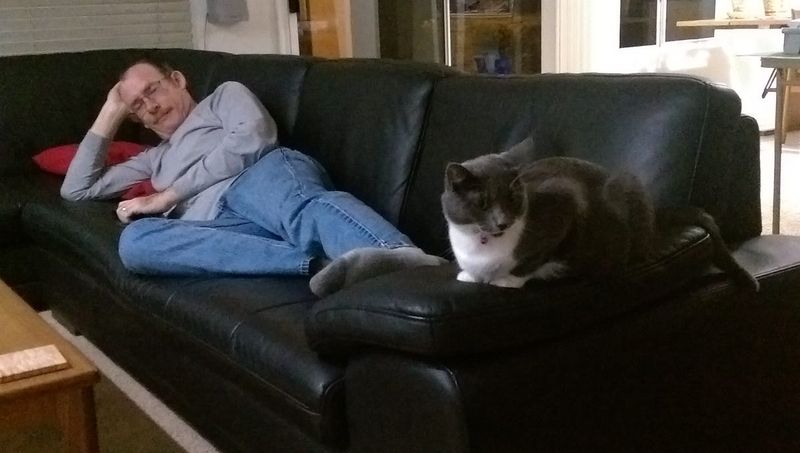
When your friend visits, your cat somehow knows exactly who dislikes cats. This social intelligence extends to all your relationships.
Cats observe how you interact with different people, noting voice changes, body language, and comfort levels. They’re particularly attuned to potential threats or changes in household hierarchy. This explains why they often gravitate toward people you trust and avoid those who make you tense.
10. Your Food Preferences

Your midnight snack habit hasn’t gone unnoticed. Cats track not just when you eat, but what foods excite you most.
They observe your enthusiasm for certain meals and snacks, noting which ones you’re most likely to share. This explains why they appear instantly when you open tuna but stay asleep when you’re eating broccoli – they’ve cataloged your food preferences alongside their own.
11. Your Physical Capabilities
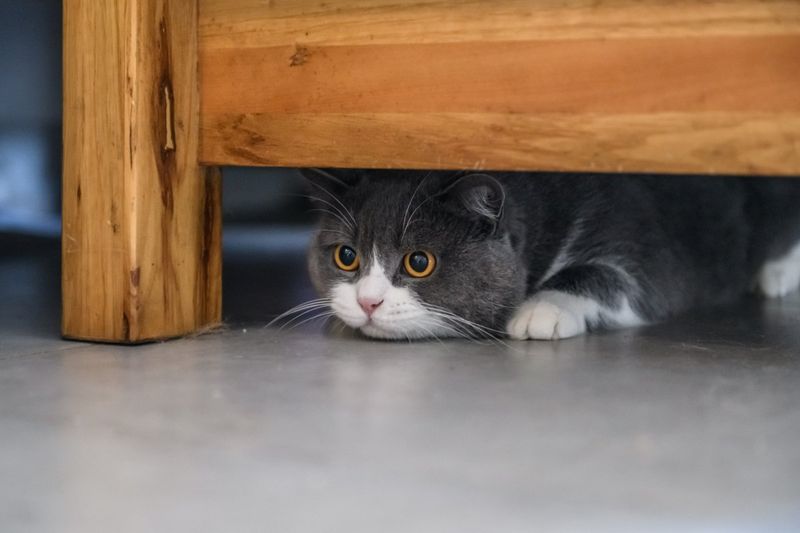
Cats instinctively know which counters you can reach and which shelves are beyond your grasp. They’ve mapped your physical limitations with remarkable accuracy.
This spatial awareness helps them find perfect hiding spots for stolen items or themselves when avoiding bath time. Your cat has essentially created a mental map of where in your home you can and cannot access easily – and they exploit this knowledge regularly.
12. Your Attention Spans
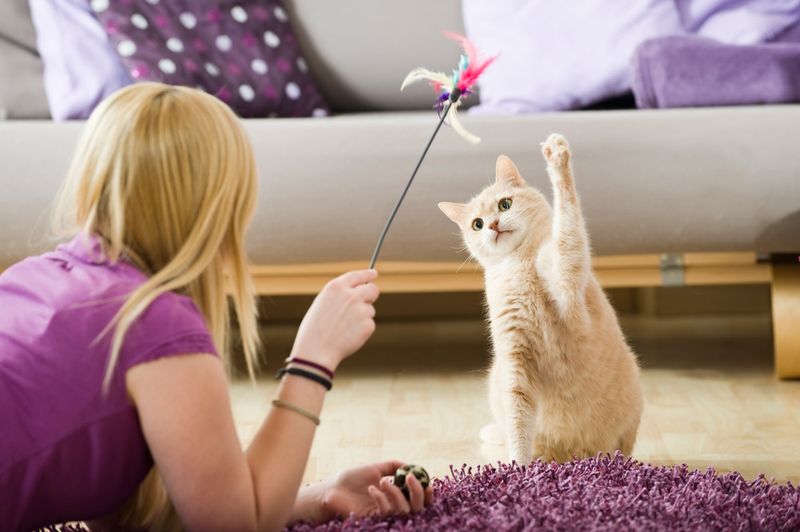
Five minutes of play followed by sudden disinterest? Your cat has timed your attention span to the second. They recognize how long you typically engage in different activities – from playtime to petting sessions.
This is why they might suddenly escalate their play behavior just as your focus wanes. They’re not being random; they’re strategically working within your documented attention patterns.
13. Your Personal Scent Map
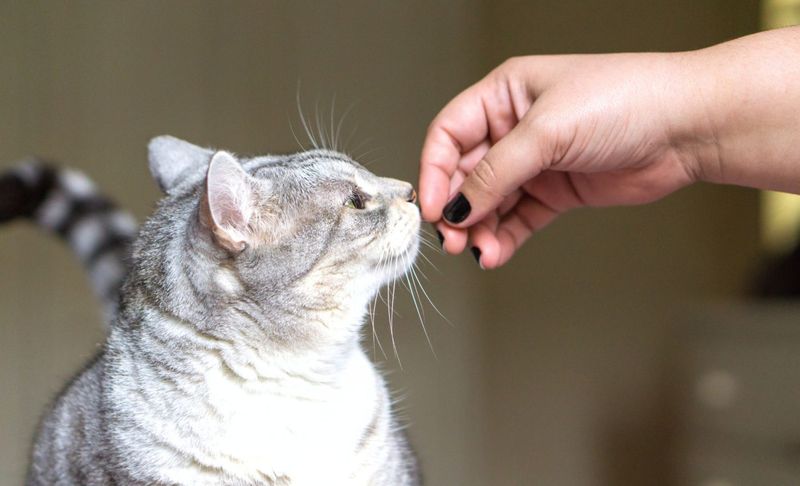
Your unique smell is your cat’s favorite perfume. Felines create detailed scent profiles of their humans, which is why they love your worn clothing.
They can detect subtle changes in your body chemistry from stress, illness, or even dietary changes. This olfactory intelligence explains why your cat might sniff you intensely after you return from unusual places – they’re updating their scent database with new information.
14. Your Subconscious Signals
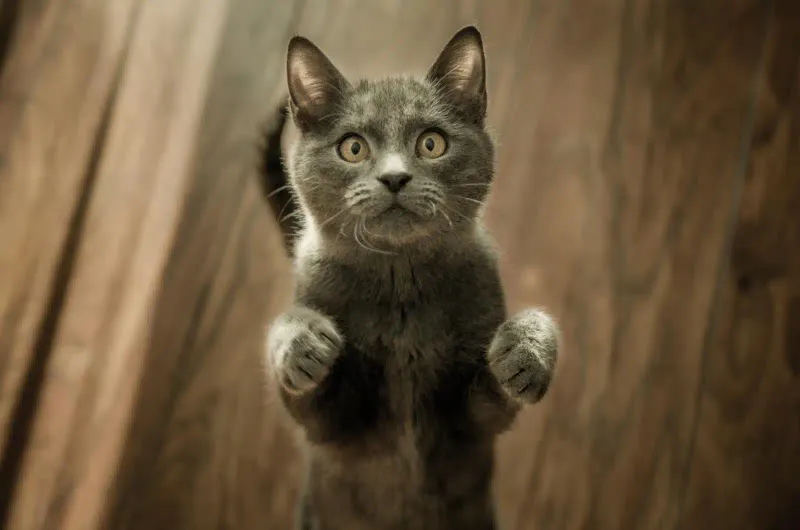
The slight twitch before you stand up? Your cat noticed it before you did. Cats pick up on micro-movements that telegraph your intentions seconds before action.
They register the subtle shift in weight when you’re about to stand, the quick glance toward the kitchen before snack time, or the slight tensing before you call their name. This predictive ability makes them seem almost psychic when they react to what you’re about to do.






